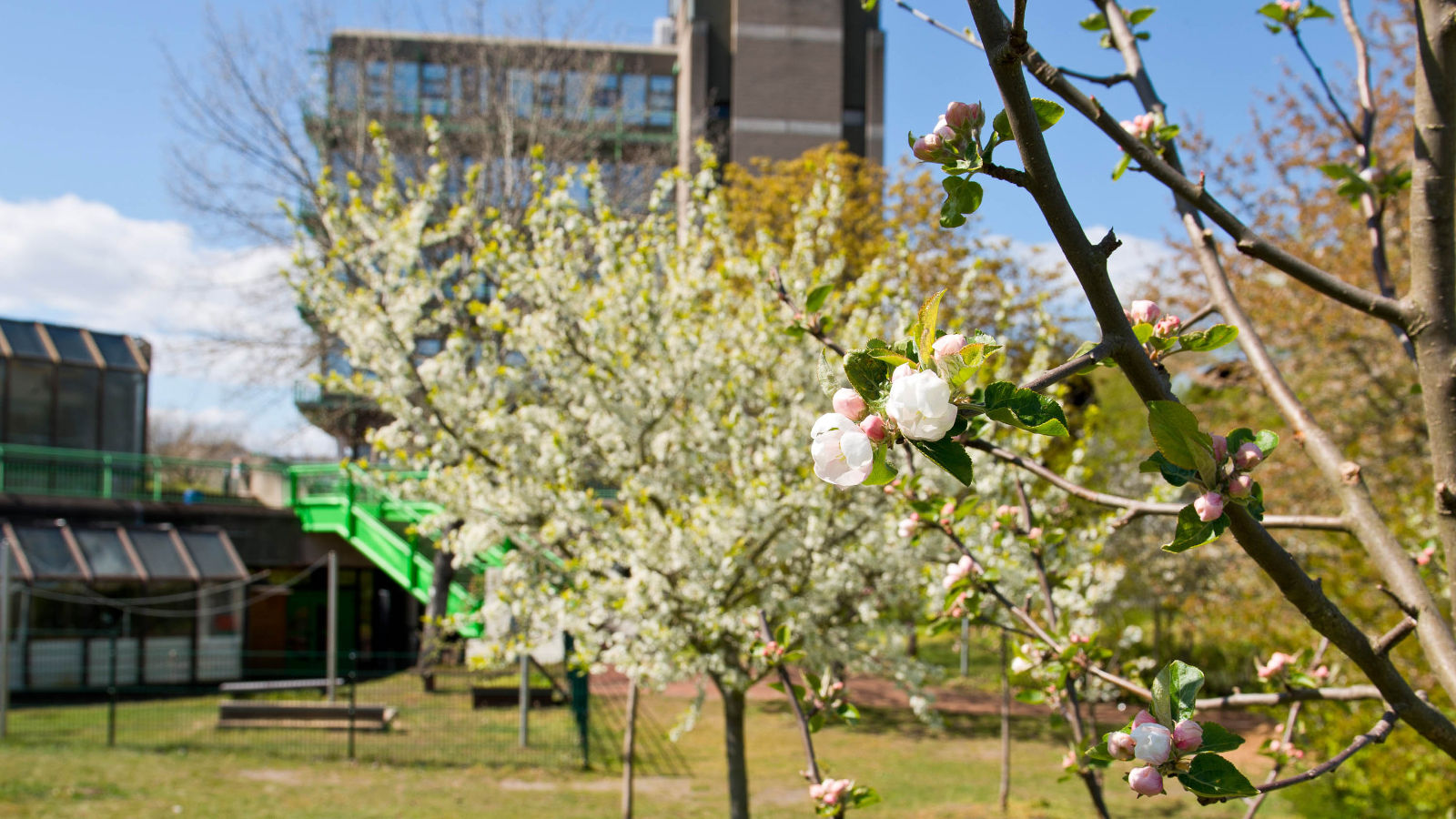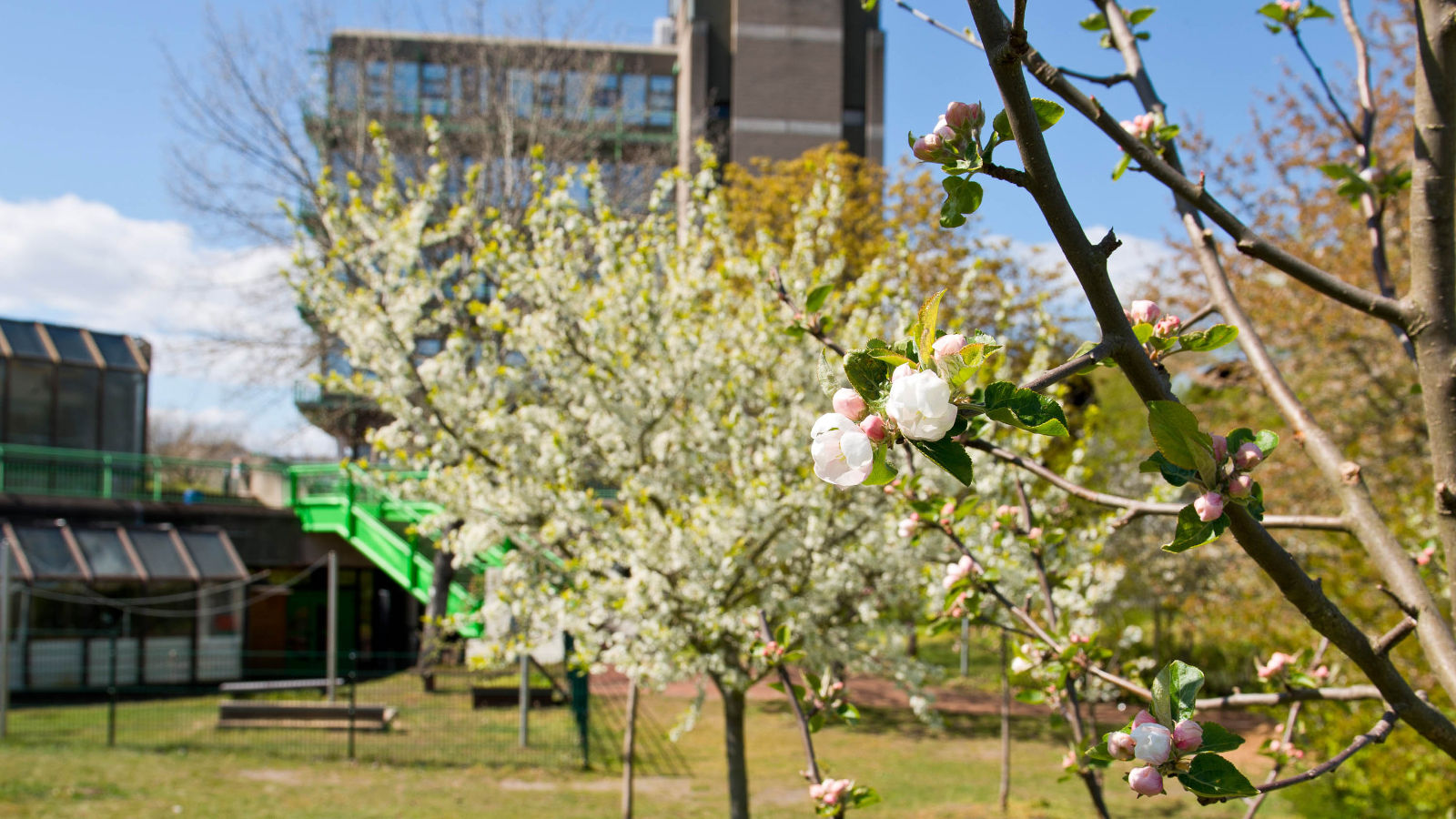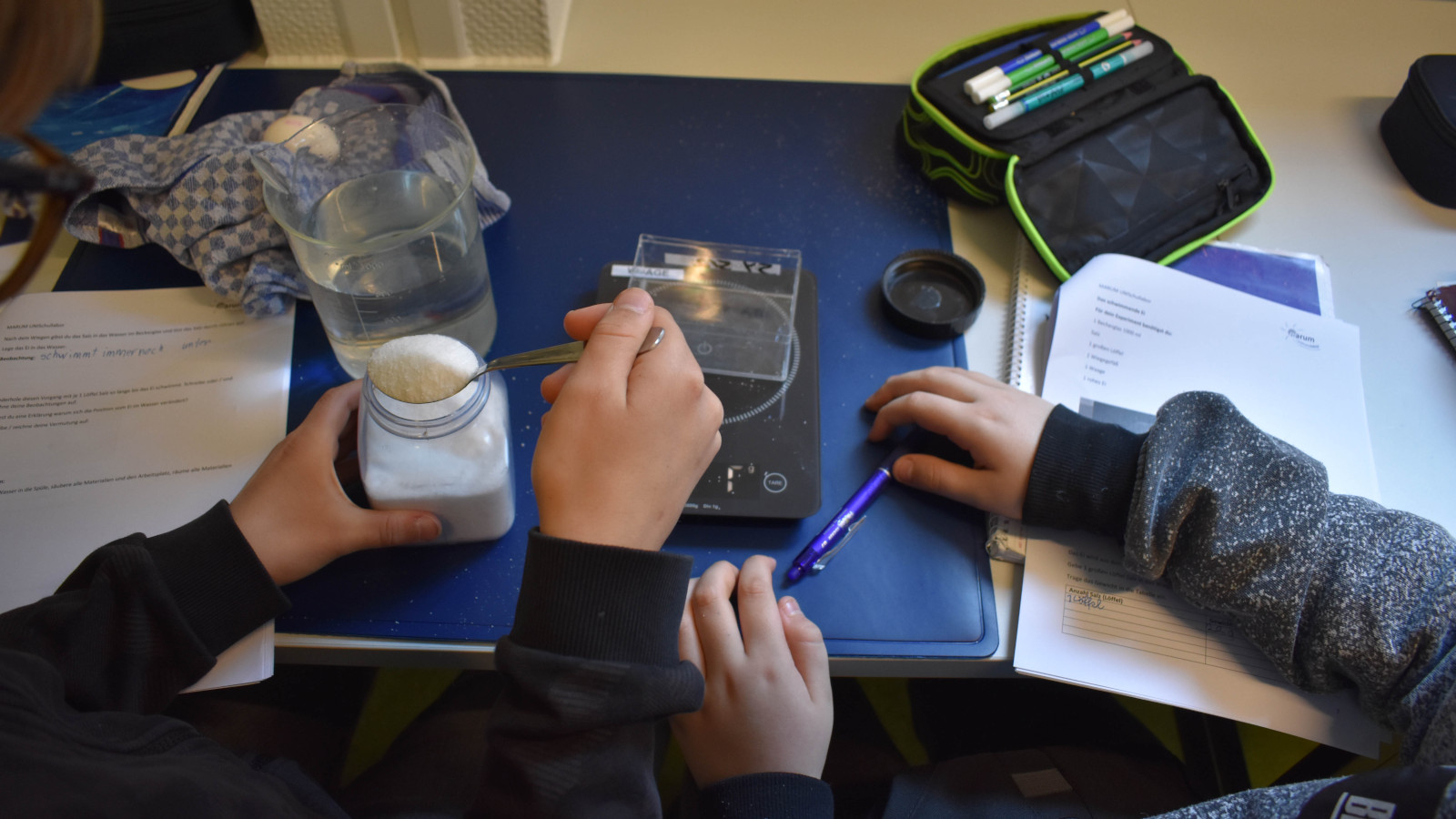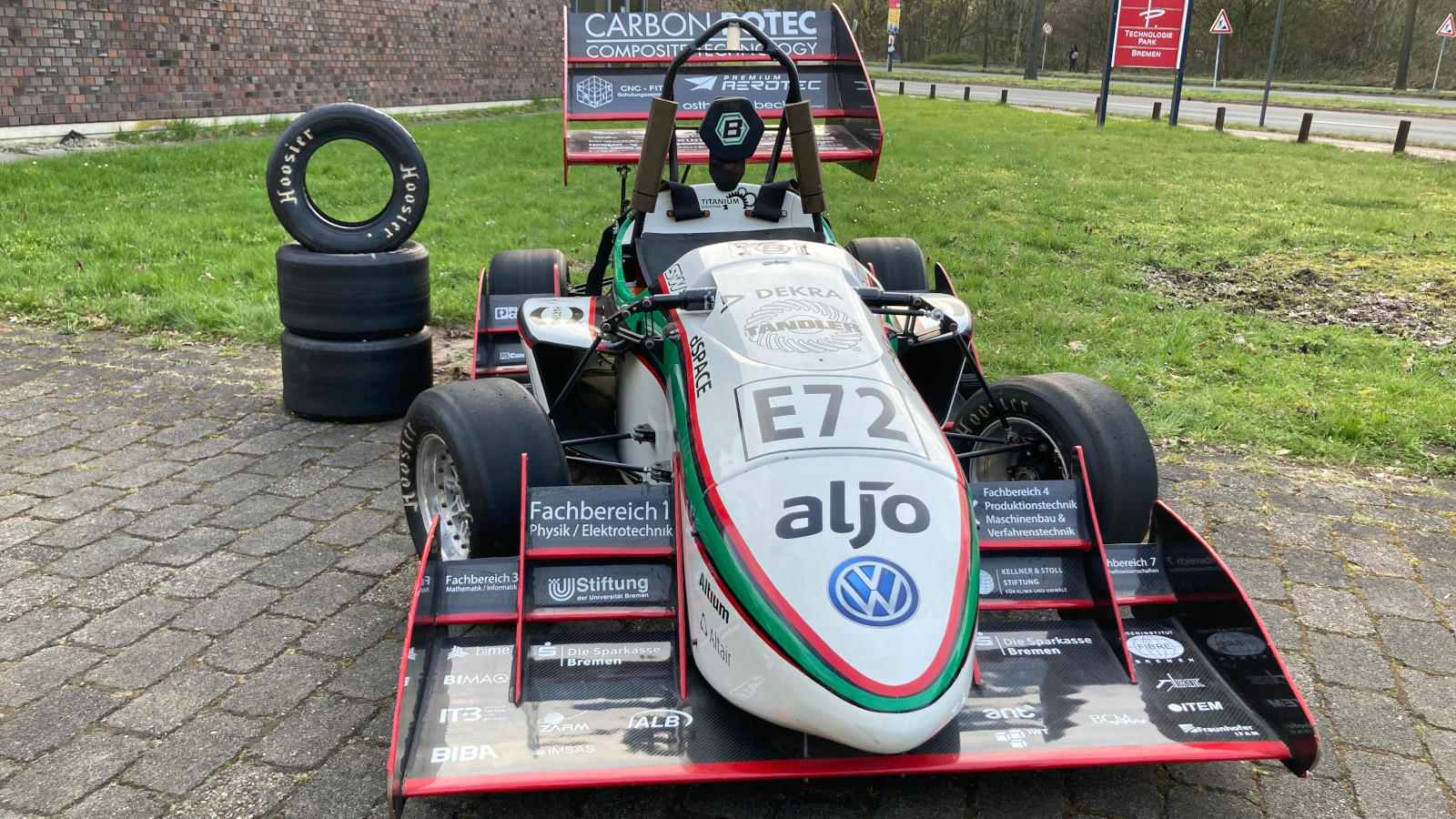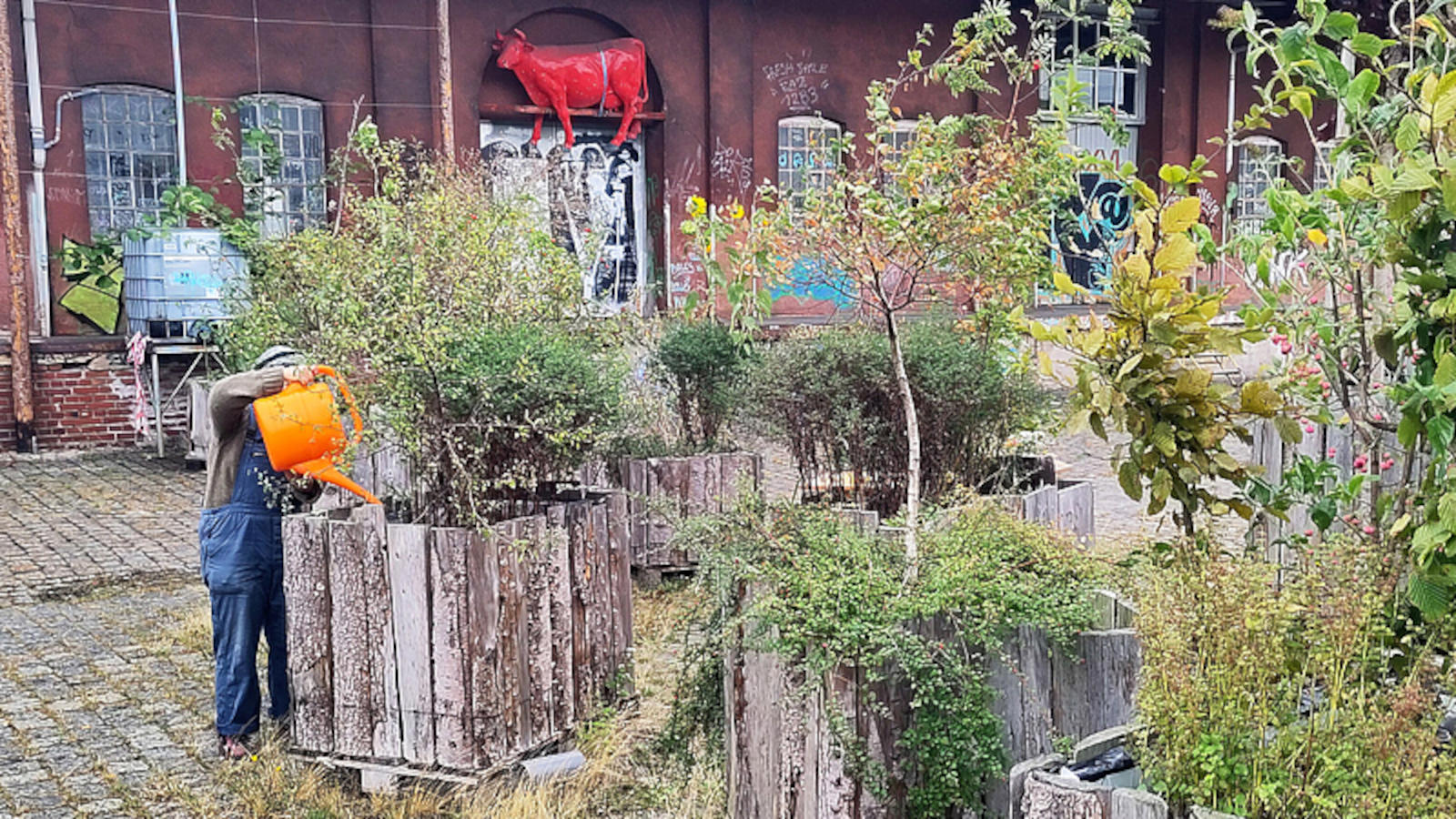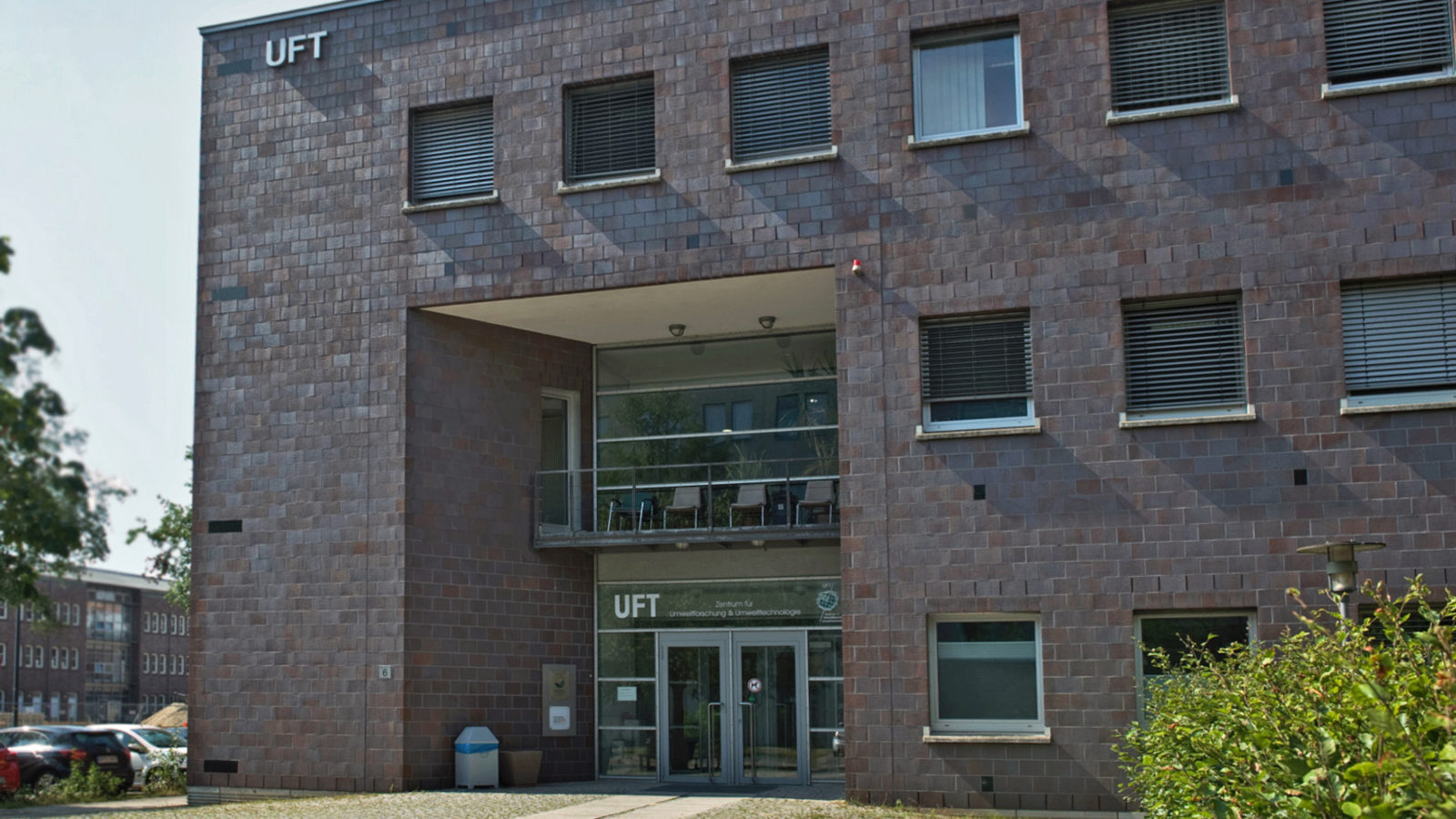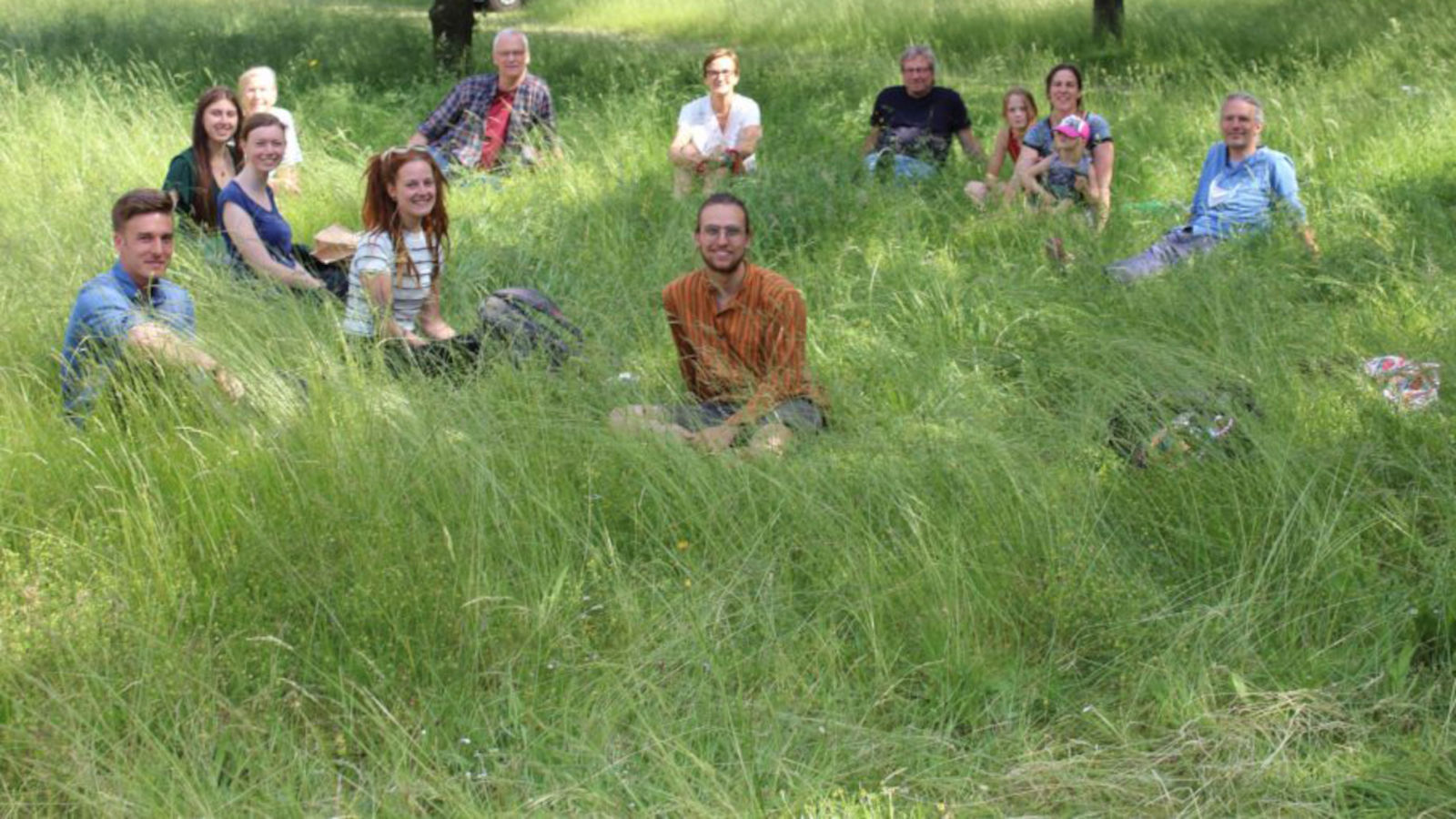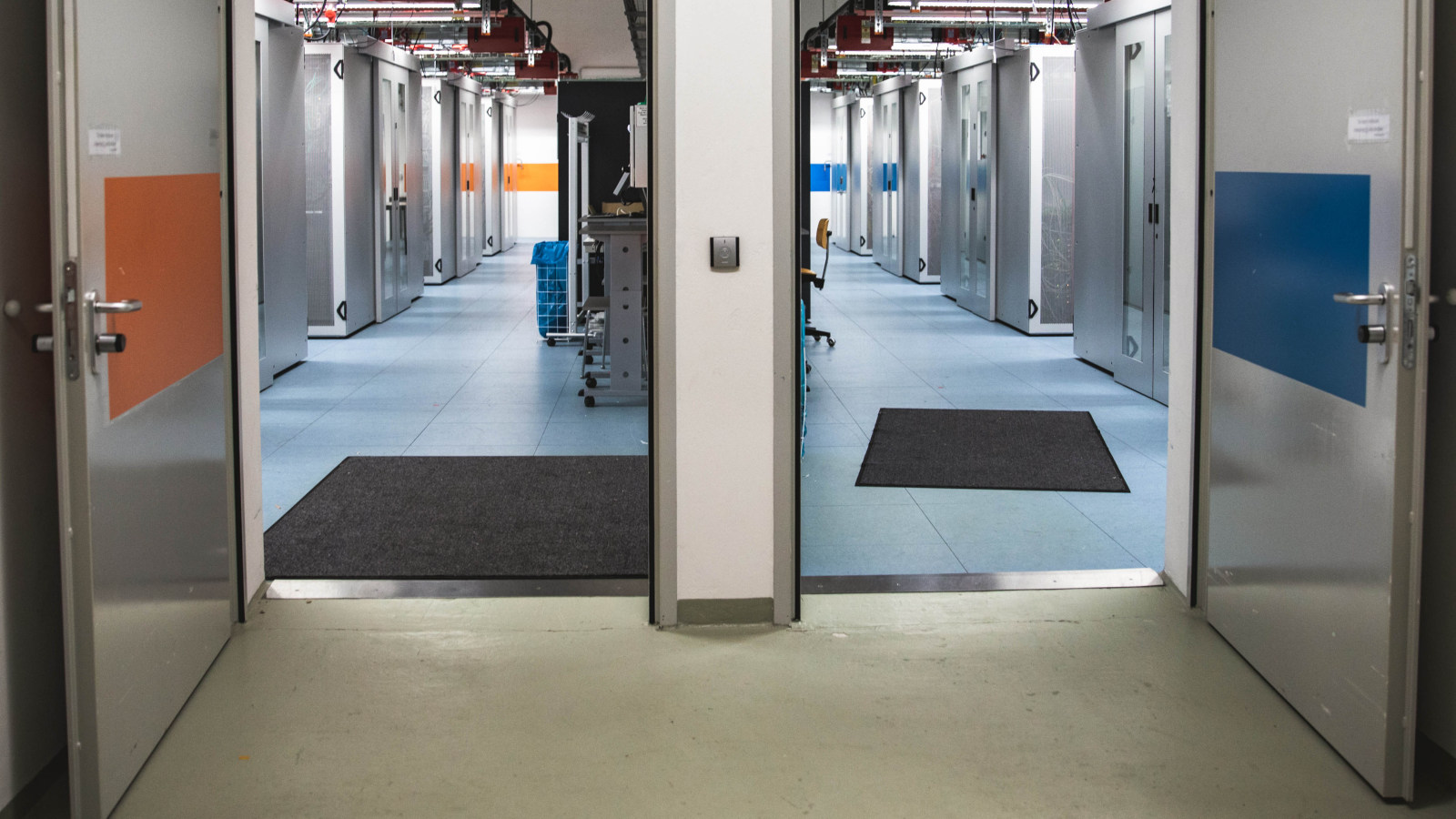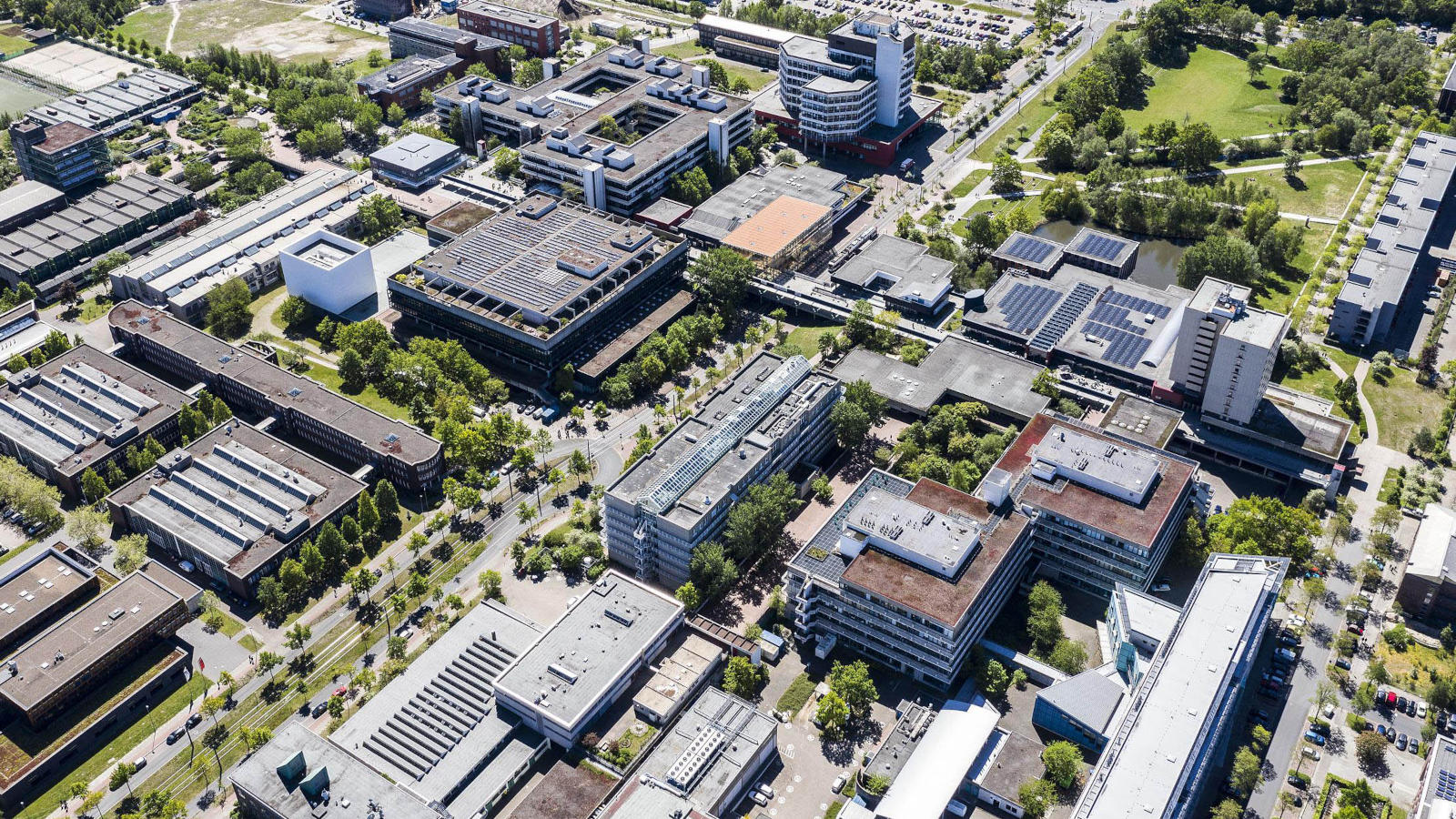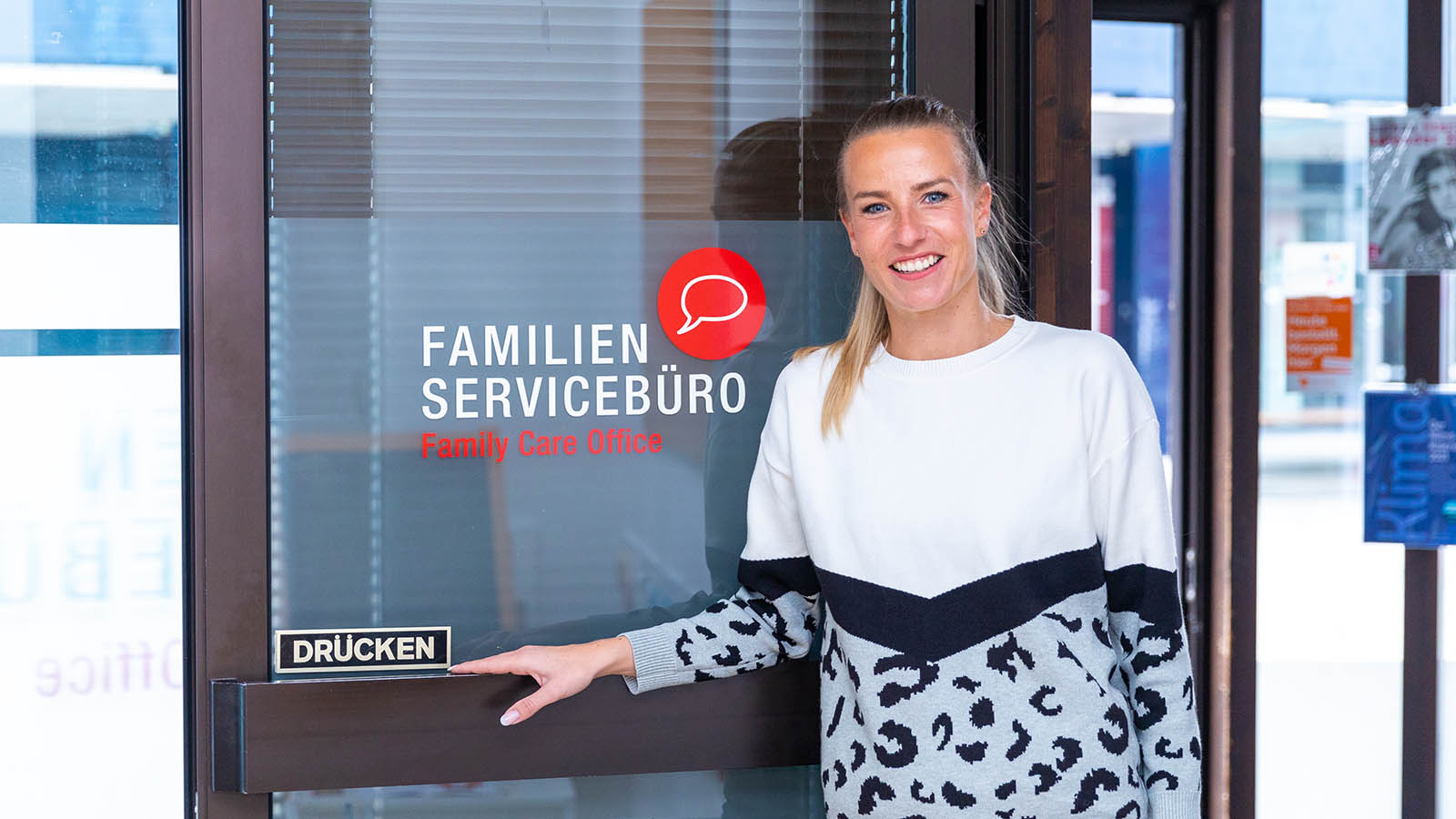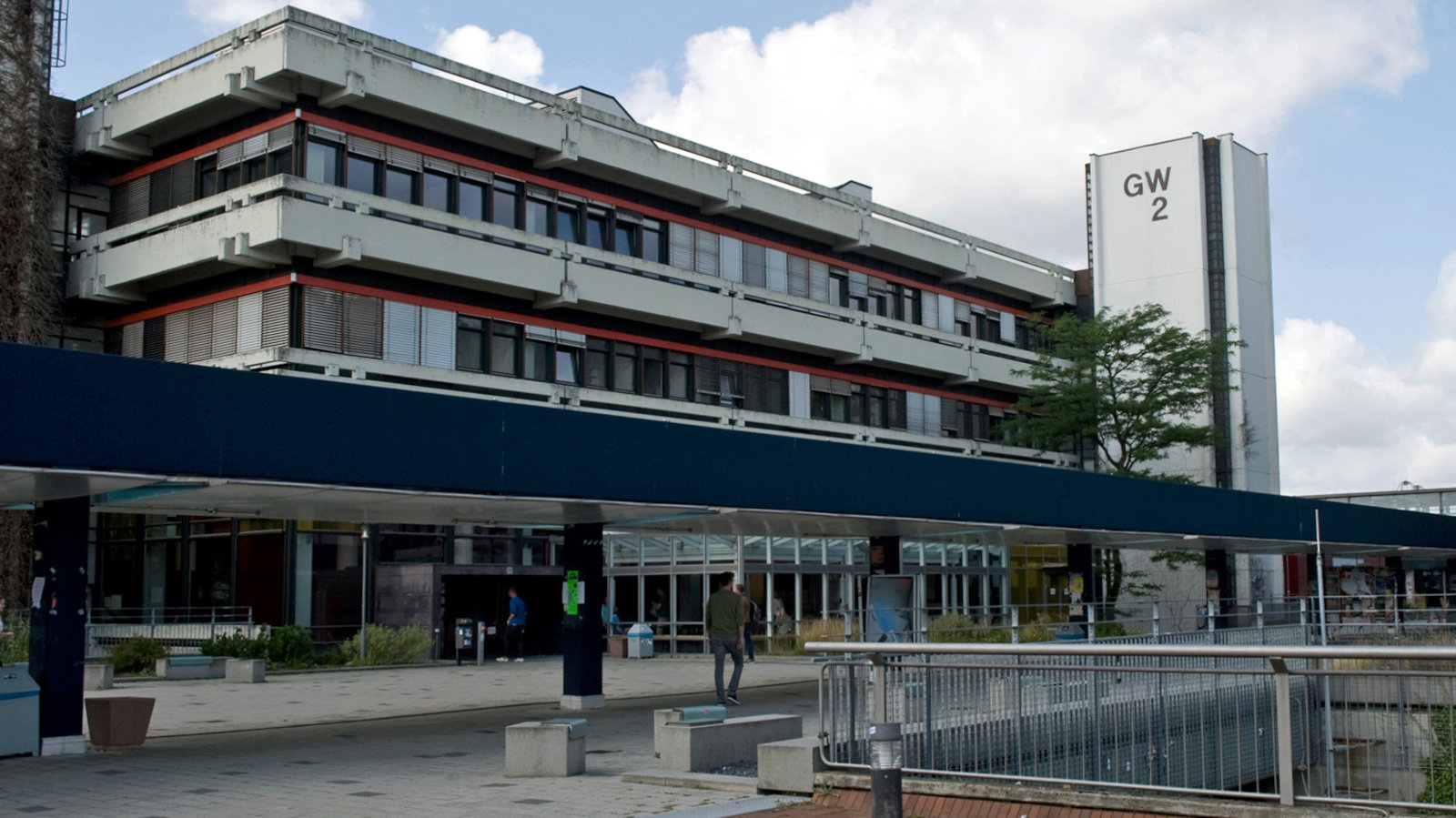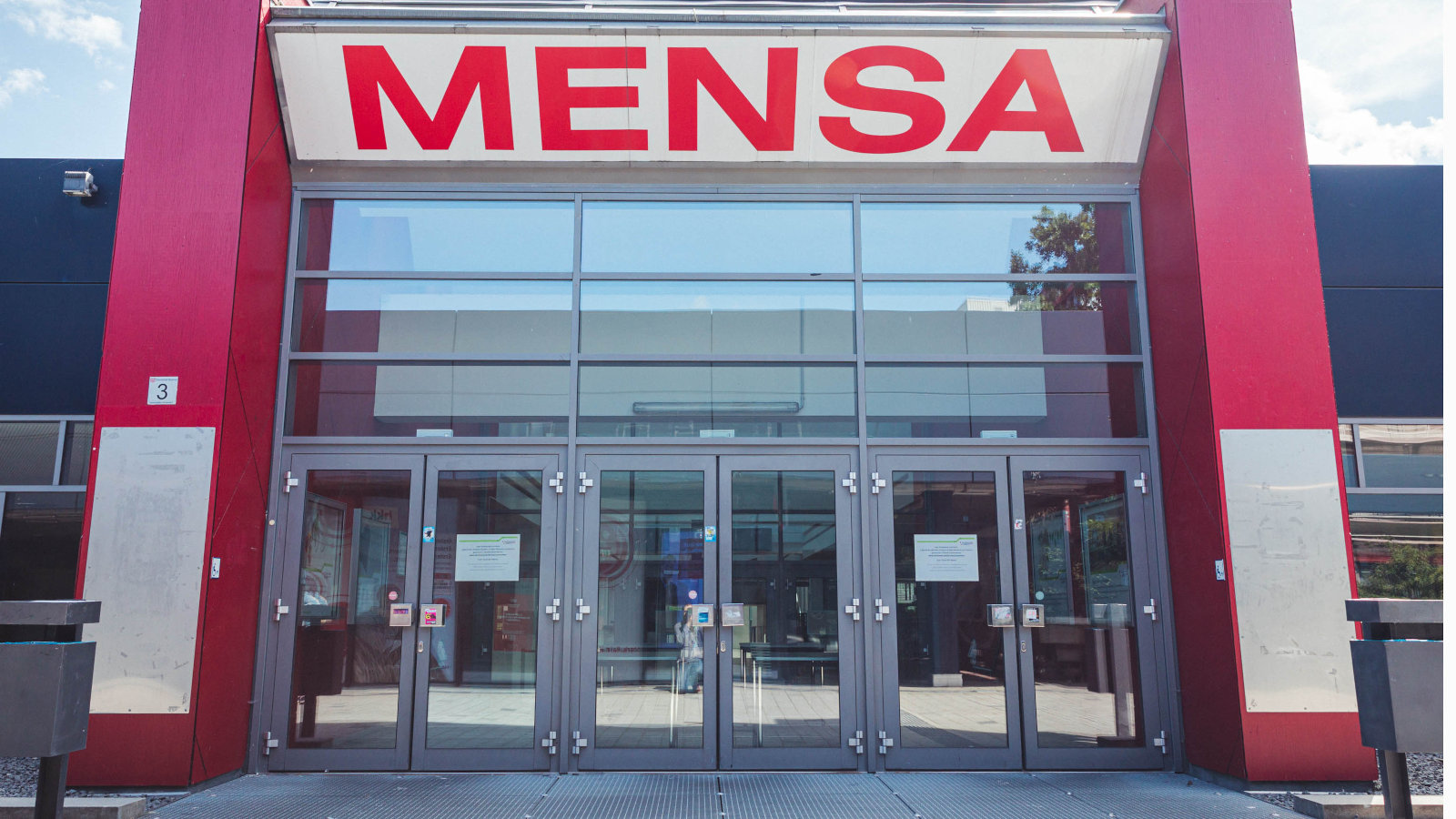On the University of Bremen campus, commitment to sustainability is visible in many ways – for example in the form of the orchard behind the Sportturm Building, where heirloom varieties thrive.© Felix Clebowski / Universität Bremen
Campus Sustainability Best Practices
Here we show you some of the areas at the University of Bremen where students, staff, researchers, and other committed individuals are working towards ensuring that humans and nature live together harmoniously.
Campus Life / Sustainability
05.2023 / Birgit Bruns / Britta Plote
The University of Bremen has set out to becoming a zero carbon campus. A number of measures are planned: For example, a new train stop on the route to Hamburg is supposed to facilitate climate-friendly travel by public transport. But apart from such large-scale projects, there are plenty of sites between the GW1 Building and the Sportturm Building where sustainability is lived and promoted – not only in environmental but also in social terms. Our photo gallery provides an overview.
The University of Bremen is one of the top universities in the world! The Environmental Management System of the University of Bremen was proud to announce this in December 2022 (in German only). The Environmental Management System is the university’s hub for environmental, climate, and sustainability issues. The news refer to the UI GreenMetric World University Ranking , in which the university has received outstanding scores.
The ranking has been evaluating strategies that reduce the ecological footprint in six different categories since 2010. In 2021, an estimated 1000 universities from around the world participated. The University of Bremen ranked 9th. If we include only the participating universities from Germany, the University of Bremen actually ranks second. Only Trier University of Applied Sciences was able to score more points with its dedicated “Environmental Campus Birkenfeld.”
This top ranking among universities shows that Bremen is on the right track when it comes to sustainability. But the up2date. editorial team wanted to find out more: Where on the Bremen campus do sustainability and climate protection become visible concretely? With the support of the university’s environmental officer, Dr. Doris Sövegjarto-Wigbers, we have put together the photo gallery below. It does not claim to be exhaustive. If you think something is missing, please send an email to up2date@uni-bremen.de and we will check if it can be included.
Bild 1/12 The orchard with its heirloom varieties behind the Sportturm Building is a particularly vivid example of the commitment to more sustainability on the campus in Bremen. But the real seedbed of the “Environment, Climate, and Sustainability” area at the University of Bremen lies elsewhere, notably at the maintenance depot on Klagenfurter Straße. This is the home of the university’s environmental management system. Specifically, the offices of the Environment and Climate Manager Dr. Doris Sövegjarto-Wigbers and the newly created Sustainability Office by and for students are located here. Incidentally, the University of Bremen was one of the first German universities to embrace the issues of “environment, climate, and sustainability.” As early as 1996, an environmental officer, Professor Bernd Jastorff, was appointed. In 2004, the University of Bremen was one of the first universities in Germany to be awarded the EMAS certification – the European Union’s environmental management seal of approval.© Felix Clebowski Bild 2/12 How can a rather abstract topic like “sustainability” be made tangible? The best way is to experiment! Students of all levels can get up close with research in the diverse school labs operated by the University of Bremen and various Bremen research institutions on and around campus. The issues of environment, climate, and sustainability are often brought to life – for example in the MARUM school laboratory. In order to learn about the “Global Water Cycle” (photo), for example, the children conduct experiments to become familiar with the properties of water. They learn about the influence that a sustainable use of water as a resource has on our lives.© MARUM Bild 3/12 As the name suggests, the Virtual Academy of Sustainability (VAS) offers online courses on sustainability. The special feature: The offer is aimed at all students in Germany and beyond. It is free of charge and courses can be accredited towards the field of General Studies or compulsory elective fields in existing degree programs. In this way, VAS makes sustainability education accessible to students at all universities. And thus makes an important contribution to achieving the goal of the UNESCO World Programme of Action as well as the 2030 Agenda for Sustainable Development Goals. The project started in 2011 and became a permanent institution of the University of Bremen in 2021.© Adobe Stock/Ermolaev Alexandr Bild 4/12 At the Biological Garden beyond the Hochschulring, primarily plants from the faculty of biology thrive. But not far from the greenhouses, there is a garage where a different wind is blowing. The garage is the refuge of Bremergy e.V., the Formula Student Team of the University of Bremen and Bremen University of Applied Sciences. Here, students develop and produce their own racing cars, with which they participate every summer in the world’s largest international engineering competition, the Formula Student. The special feature: The race car is powered by electricity only. In this way, a more sustainable approach to racing can be realized. The photo shows an older model of such a racing car.© Universität Bremen Bild 5/12 The artec Sustainability Research Center is an interdisciplinary center of the University of Bremen. Researchers from different disciplines jointly investigate issues of sustainability and socio-ecological transformation. One example of this multifaceted work is the “Biodiverse Cities” project (photo) headed by Professor Michael Flitner. The project aims to accelerate biodiversity and climate adaptation measures in urban environments. Bremen with its district Gröplingen is one of five cities participating in the project. In cooperation with local actors, nature-based solutions are being developed and prepared for implementation in two urban areas as a pilot project within the framework of urban renewal.© Michael Flitner/Universität Bremen Bild 6/12 Another research facility focusing on sustainability is located right next door, also on Leobener Straße: the Center for Environmental Research and Sustainable Technologies (UFT). The UFT is a central research unit of the University of Bremen and consists of seven groups from two faculties. The research unit – including many students – is investigating the complex interactions between chemical substances and their living environment. Specifically, they develop sustainable processes from wastewater treatment to the design of energy systems. In addition, researchers and students from many other areas at the University of Bremen are engaged at research on climate, environment, and sustainability – for example, at the various faculties.© Harald Rehling/Universität Bremen Bild 7/12 If you stroll around campus, you will see meadows with tall vegetation in many places. These are buzzing, crawling, and humming. Responsible for these “wild meadows” is the “Campus goes Biodiverse” project, launched in 2019. The members of the group, among them mainly students but also some researchers of the University of Bremen, are interested in creating alternative green spaces on campus. Biodiversity is actively fostered by not mowing the selected areas as frequently. How have the meadows changed since 2019? And what does that mean for biodiversity on campus? Anyone interested can find out more on the project blog.© Stefano Pinto Bild 8/12 The technical heart of the University of Bremen is located in a gray block in the middle of the campus on Leobener Straße: The Green IT Housing Center. With the creation of the Housing Center in 2014, the IT of the University of Bremen was centralized in order to save costs and energy. Cooling is provided in the cold seasons using the outside air. Only in the summer months, an absorption refrigeration system in the energy center functions as a substitute. It generates cooling from waste heat from the municipal waste incineration plant. Overall, this results in very cost-effective and low-carbon cooling, which accounts for a significant portion of the energy consumed by computing centers.© Matej Meza / Universität Bremen Bild 9/12 In 2011, the UniBremen SOLAR cooperative put its first photovoltaic system on the University of Bremen campus into service. The cooperative, which is run by employees and students of the university, has since built five more systems. Since the first system started operations, these have saved a total of around 4,000 tons of the climate-damaging greenhouse gas CO2. For comparison: A long-haul flight from Frankfurt to Sydney causes around 5.5 tons of CO2 emissions. 4,000 tons of CO2 are therefore equivalent to more than 700 of these flights.© Detmar Schmoll/Universität Bremen Bild 10/12 The University of Bremen’s Family Care Office is located in the middle of the University Boulevard. Its staff offers an initial consultation for all university employees and students with family responsibilities. If a student is pregnant, for example, she can notify the university and is entitled to maternity protection. This protects both mother and child. Those who have children or are caring for a loved one can also obtain practical assistance from the Family Care Office to help them better reconcile their care responsibilities with their job or studies. In this way, the university also supports its employees and students in terms of social sustainability.© Matej Meza / Universität Bremen Bild 11/12 The existence of yet another facility shows that the University of Bremen is committed to more sustainability in terms of social justice on its campus. Administrative Unit for Equal Opportunities | Antidiscrimination, ADE for short. On the fourth floor of GW2 building, a team of several counselors advises students as well as employees of the university, the universities of applied sciences, and the central administration of Bremen’s public service. They provide counseling, trainings, and support on an individual and institutional level in cases of conflict and/or discrimination. In 1993, the University of Bremen was one of the first universities in Germany to establish a key service center for this subject area.© Harald Rehling / Universität Bremen Bild 12/12 If you are on campus for a long time or on a regular basis, you will usually want to eat or drink something. The Bremen Student Services Organisation with its wide range of culinary offerings will take care of your needs. In terms of environmental sustainability, the Mensa cafeteria and other food services have placed issues such as regional production, waste avoidance, and providing a wide range of vegetarian and vegan options at the top of their agenda. Sustainability is also practiced in terms of social responsibility: Children of students eat free of charge in the Mensa cafeteria until they reach the age of six. There have also been special “free tables” at which students in need can obtain vouchers for the cafeterias of the Bremen Student Services Organisation.© Matej Meza / Universität Bremen
Further information on the facilities shown in the photo gallery:
Environmental management website
Sustainability Office/Green Office website
MARUM school laboratory (website currently in German only)
Virtual Academy of Sustainability
Bremergy
Project “Biodiverse Cities”
artec Sustainability Research Center
Center for Environmental Research and Sustainable Technologies
Project „Campus goes Biodiverse“
Green-IT Housing Center
UniBremen Solar cooperative
Family Care Office
Administrative Unit for Equal Opportunities | Antidiscrimination(ADE)
Student Services Organisation Bremen
Theme of the Month: Sustainability
Since its foundation in 1971, the University of Bremen has been committed to social responsibility. Climate protection and sustainability are fundamental principles guiding the university: in research, teaching, and operations. For this reason, up2date., the University of Bremen online magazine, will focus on the topic of sustainability in May. The theme of the month explores current projects, issues, and challenges.
